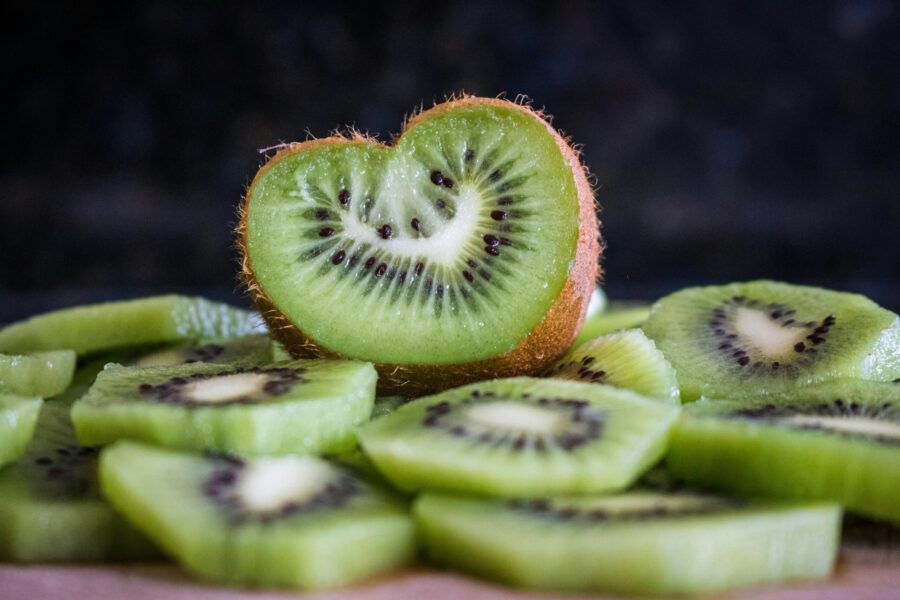Kiwifruit May Boost Your Mood
What’s green and black and fuzzy outside? A wonder fruit that just might boost your mental health.
A recent study found that for people with low vitamin C levels, eating kiwifruit helped improve mood within just a few days, Medical News Today reports.
The study, published in British Journal of Nutrition, explored how vitamin C – and kiwifruit, in particular – impacted mood and how quickly study participants experienced any benefit.
The findings? After only 4 days, participants who ate kiwifruit experienced improved mood. The effects on self-reported vitality and mood were slightly stronger than for those who received vitamin C supplements.
The study confirmed prior research findings linking vitamin C to mental health and suggests that whole foods rich in vitamin C may be the best way to get it.
Gram for gram, green kiwifruit contain more vitamin C than oranges, and the SunGoldTM variety used in the study (which are gold rather than green inside) are even higher, with three times the vitamin C of an orange.
How was the study conducted?
During the study, 155 participants were divided into three groups: those who ate two kiwifruit a day, those who took a 250 mg vitamin C supplement, and those given a placebo.
Every other day, over the course of four weeks, researchers collected survey data via smartphone where participants self-reported the following:
- energy and fatigue
- mood
- flourishing
- sleep quality and quantity
- physical activity levels
How did kiwifruit fare?
They packed a punch – and quickly. Researchers found that participants consuming the kiwifruit reported improved mood and vitality at around 4 days and improvement in flourishing at around day 14.
“We were surprised that participants randomized to the whole-food condition (2 SunGold kiwifruit per day) showed improvements to mood in as early as four days into the intervention,” said study author Tamlin Conner, PhD, a psychological scientist and professor in the Department of Psychology at the University of Otago, New Zealand.
The findings point to the effects of vitamin C on mental health and that whole food sources may be the best way to get this nutrient. “This trial highlights a crucial point of difference between food-based vitamins and those from synthetic sources,” said registered dietitian and nutritionist Rick Miller, who was unaffiliated with the study.
“The strength of the findings for people with low vitamin C levels is impressive,” said Dr. Alex Dimitriu, a double board-certified psychiatrist also unaffiliated with the research. “Given the marked benefits of normal levels of vitamin C, this study underscores the importance of having a healthy amount of citrus[or] vitamin C in one’s diet. In our impatient world, the speed of these improvements is remarkable.”
More research is required
The study had limitations. Although neither the researchers nor the participants knew whether they were taking vitamin C supplements or a placebo until the end of the study, there was no way to “blind” servings of actual kiwifruit. Although blood work could measure vitamin C levels, participants self-reported their feelings of well-being and vitality, which are subjective measures.
And since participants in the study were relatively mentally healthy, the findings do not extrapolate to those experiencing emotional distress. More research is required to determine whether vitamin C or kiwifruit can help conditions like depression.
But in the meantime, if you need a snack, why not reach for a kiwifruit? In addition to supporting your immune system, the fuzzy little fruit, packed with vitamin C, just might boost your mood – and fast.
Read the full article or the original research paper here.
Freeborn, Jessica. “Eating more kiwifruit could boost your mental health in just a few days.” Medical News Today, 30 Jan 2024, https://www.medicalnewstoday.com/articles/nutrition-and-mental-health-is-there-a-link.
Photo by Lesly Juarez on Unsplash



